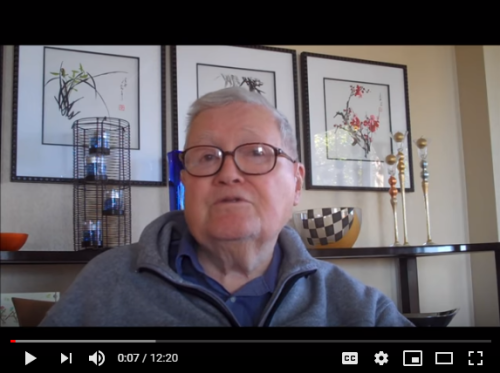Reg Studies Archive
A collection of old projects the GW Regulatory Studies Center has organized, and other external documents that may be interesting to take a further dive into the regulatory process.
Oral History Project
Lessons from the 1970s-80s Regulatory Reform Successes
The George Washington University Regulatory Studies Center’s premise is that knowledge and ideas matter, and that sound scholarship can help shape the institutional framework in which policy is made, as well as the policy decisions themselves. This was very evident in the reform of economic regulation during the 1970s and 1980s. The move toward deregulation was driven, in part, by scholarly literature (in antitrust, law, and economics) that showed that regulation of private sector prices, entry, and exit tended to benefit the regulated industries, often at the expense of consumers. Rather than offer a cure for “natural monopoly,” economic regulation was the principal cause of some quite unnatural monopolies. Policy entrepreneurs relied on this academic research to foster competition in several previously-regulated industries, with resulting improvements in innovation and consumer welfare.
RSC’s oral history project will focus on the academics and policy makers whose ideas and actions altered the relationship between government, industries, and consumers. We’ll record interviews with the leaders of the 1970s –1980s regulatory reform movement (both in academia and government), get their perspectives on the drivers and conditions for reform, their evaluation of the long-term impact of their reform efforts, and also their insights into the lessons we can apply from their experiences today.
The resulting recordings will be preserved in their entirety so future generations of regulatory scholars and policy makers can hear firsthand from the key players in regulatory reform. We hope to be able to compile excerpts from the recordings for educational materials (for example, a short web-based montage). These interviews will also illuminate a book on regulation aimed at law, economics, and policy students. The goal is to help students understand that they can use scholarship, not just to study policy, but to make it better.
Gordon Tullock Interview
These clips are from Susan Dudley's interview with the brilliant, irascible, witty & charming Gordon Tullock in April 2010. The GW Regulatory Studies Center's oral history project interviews the academics and policy makers whose ideas and actions altered the relationship between government, industries, and consumers. We record interviews with the leaders of the 1970s regulatory reform movement (both in academia and government), get their perspectives on the drivers and conditions for reform, their evaluation of the long-term impact of their reform efforts, and also their insights into the lessons we can apply from their experiences today.
While he is an intellectual giant in the fields of economics and public choice, he does not have a degree in economics.
Professor Tullock attended law school at the University of Chicago. He joined the Foreign Service shortly after graduation and was posted to Tientsin, China. While posted to an American college to study Chinese, he read Austrian economist Ludwig von Mises's Human Action in his spare time and reports he later found himself better trained than his contemporaries who had Ph.D.'s in economics.
Professor Tullock began postdoctoral work at the University of Virginia in 1958 and taught at that school's Thomas Jefferson Center for Political Economy from 1962 to 1967. The Calculus of Consent (1962), co-written with George Mason University's James Buchanan, is a founding text of the public choice movement.
With Buchanan, Professor Tullock moved to Virginia Polytechnic Institute from 1968 to 1983 and to George Mason from 1983 to 1987. In 1987, he left George Mason for the University of Arizona. Professor Tullock is best known for inventing the concept of rent-seeking: the use of political or institutional power to extract wealth transfers from the rest of the economy. He is the author of 16 books and more than 150 papers. He received an honorary degree from the University of Chicago and served as president of the Southern and Western Economic Associations. In January 1998 he was a Distinguished Fellow of the American Economics Association.


